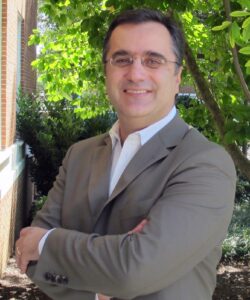 RONALD WHITTIER, Ph.D., was born in San Francisco, California, where he attended public schools. In 1960, he graduated with honors from the University of California, Berkley, with a BS in Chemical Engineering. He enrolled with Stanford University a year later, and in 1962, was accepted by William H. Schwarz, Ph.D., as a doctoral student. After exploring challenges in turbulence, acoustics in fluids, and rheology, Dr. Whittier’s thesis focused on the study of acoustics in non-Newtonian fluids.
RONALD WHITTIER, Ph.D., was born in San Francisco, California, where he attended public schools. In 1960, he graduated with honors from the University of California, Berkley, with a BS in Chemical Engineering. He enrolled with Stanford University a year later, and in 1962, was accepted by William H. Schwarz, Ph.D., as a doctoral student. After exploring challenges in turbulence, acoustics in fluids, and rheology, Dr. Whittier’s thesis focused on the study of acoustics in non-Newtonian fluids.
After receiving his Ph.D. in 1965, Dr. Whittier entered the emerging semiconductor industry as a researcher at Fairchild Semiconductor where he did basic research and development on new semiconductor devices. In the spring of 1970, he joined the start-up Intel Corporation as Engineering Manager in the company’s first manufacturing plant in Mountain View, California. Dr. Whittier then had several careers at Intel in a variety of executive positions, including director of technology development and engineering, general manager of the memory products division, director of corporate marketing, founder and director of the Intel Architecture Laboratories, and general manager of the digital content group. In 2000, Dr. Whittier led an Intel-sponsored venture to pursue opportunities in the then new Internet-based industry. In 2010, he retired from industry.
Dr. Whittier formed two non-profit organizations in 2000: FamiliesCAN, which supports underserved families impacted by cancer; and TechFutures, which underwrites a three-year technical program in information technologies at three public high schools in an underserved county in California. Both organizations continue today.
Dr. Whittier and his wife, Ellen, live in the San Francisco Bay Area. He has three adult children and six grandchildren.
WILLIAM H. SCHWARZ, Dr. Eng., joined the Johns Hopkins University School of Engineering as a professor of mechanics and materials science in 1968, and later joined the Department of Chemical Engineering as its chair from 1979 to 1981. Dr. Schwarz, who passed in 1995, was a Baltimore native and received his undergraduate, graduate, and doctoral degrees from Hopkins in 1951, 1955, and 1957 respectively.
Dr. Schwarz’s research interests and publications focused on the fields of fluid mechanics, acoustics, and rheology. His projects were varied, ranging from the study of swallowing mechanics to the study of bacteria causing drag on sea vessels of the U.S. Navy.
He was an avid yachtsman for 40 years, winning numerous races on both the Atlantic and Pacific coasts. As an undergraduate student, he played defensive end on the Hopkins football team and later served as line coach for the team as a graduate and doctoral student.
Prior to joining Hopkins as a faculty member, he worked at Stanford University where he taught Dr. Ronald Whittier, benefactor of the professorship named in Dr. Schwarz’s honor. At both universities, he is credited with helping pioneer the chemical engineering programs.
